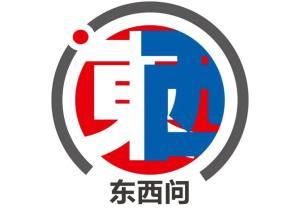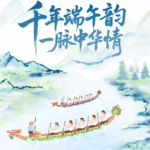
——Exclusive interview with Associate Professor Sun Wenjie of the School of Physical Education at China University
Reporter Xu Wenxin

During the Dragon Boat Festival, various parts of China feature lively “dragon boat scenes,” where one dragon boat after another races ahead, becoming a beautiful sight during the holiday. As a traditional Chinese sports activity, dragon boat racing is also popular overseas. From the “dragon boat banquet” of Southeast Asian Chinese communities to dragon boat races in Cape Town, South Africa, from dragon boat training camps of Argentine Chinese community groups to the Chinese dragon boat club in Italy, how does the millennium-old dragon boat make its distinctive mark overseas?
Recently, Associate Professor Sun Wenjie of the School of Physical Education at China University was interviewed by “East-West” and explained how dragon boat racing has evolved from a folk symbol to an international language.
The main points of the interview record are as follows:
Reporter: From a traditional Chinese folk activity to a popular sporting event, what stages has dragon boat racing gone through in its transmission? What factors have contributed to its establishment overseas?
Sun Wenjie: The spread of dragon boat racing has mainly gone through four stages: originating during the Warring States period, embodying the meaning of ritual and prayer; becoming gradually folklore and competitive during the Ming and Qing dynasties; during the mid-19th century, the Chinese in Hong Kong brought dragon boat culture to Southeast Asia, America, Europe, etc., becoming a symbol of cultural identity for overseas Chinese communities; in 1976, the first Hong Kong International Dragon Boat Invitation Race was held, pushing dragon boat racing towards internationalization, followed by the establishment of the International Dragon Boat Federation, which unified relevant rules and accelerated its competitive progress; post-21st century, dragon boat racing integrated into environmental protection and public welfare, among other diverse fields, forming localization in countries such as the United States, Australia, Germany, and Argentina, realizing cross-cultural integration.
The ability of dragon boat racing to take root overseas is mainly due to five key factors: the Chinese community lays the foundation for the spread of dragon boat racing through organizing festivals; China promotes dragon boat racing globally as a significant cultural symbol; international sports organizations establish rules, hold competitions, and carry out commercial operations, pushing for the professionalization of dragon boat racing; the competitive characteristics of dragon boat racing align with Western values, and the promotion through television and social media helps different ethnic groups understand and actively participate in the sport. Moreover, the team cooperation and other concepts embodied in dragon boat racing are widely applicable in corporate culture and education, enhancing global adaptability.

On May 24, 2025, the third “Cultural China·Cape Town Dragon Boat Festival” was held in Cape Town, the legislative capital of South Africa. Fred Barker photo
Reporter: What is the biggest challenge dragon boat racing faces in its international promotion process, and how can these challenges be overcome?
Vincent Sui: The challenges currently faced in promoting dragon boat racing internationally fundamentally boil down to the issue of cultural symbols adapting to the global linguistic environment. Cultural differences and language barriers not only lead to a loss of meaning in cross-cultural communication of dragon boat culture, but also result in the sport often being simplified overseas to merely a water-based competition, with its underlying values of collectivism, the concept of harmony between humans and nature, and traditional Dragon Boat Festival customs being difficult to effectively decode.
Behind this cognitive disconnection are structural differences in language systems and value perceptions of different civilizations. Additionally, part of the international promotion remains at surface level, lacking systematic and localized reconstruction, making it challenging for dragon boat culture to truly integrate into local societies.
Promoting dragon boat culture overseas requires innovative transmission models. On one hand, it is necessary to fully utilize new media tools such as short videos and live broadcasts to build an integrated online and offline communication framework that enhances interactivity and engagement; on the other hand, deepening the interpretation and dissemination of cultural connotations is important. This involves systematically sorting out the historical origins and spiritual core of dragon boat culture, adopting an international perspective to link the values of teamwork, courage, and pioneering spirit with global cultural recognition.
For example, while establishing specialized training systems and competition standards, incorporating traditional ceremonies such as dragon head rituals and awakening the gong into the competition process allows cultural elements and competitive mechanisms to intertwine, enhancing the cultural atmosphere. Additionally, promoting dragon boat sports in overseas schools and Chinese education systems, developing cultural courses and teaching materials, helps them become educational tools for cultural transmission.
Meanwhile, it is advised to strengthen the building of cross-cultural communication talent teams, fully leveraging the bridging role of overseas bilingual teachers and international students to promote the accurate dissemination and deep recognition of dragon boat culture through localized expression, thus aiding its wider transmission and sustained vitality overseas.

Reporter: What is the core essence of dragon boating as a sport ambassador, and what unique significance does it have in inheriting Chinese culture?
Su Wenjie: The dragon boat sport can be participated in without relying on language, making it suitable for both new generations of Chinese and non-Chinese friends to experience together. It serves as a highly inclusive practice field for Chinese culture beyond Chinese education, helping to establish cross-generational and cross-cultural identity. Dragon boat races are often conducted with groups, clan associations, and schools as units, acting as a major form of community self-organization and intergenerational bonding, effectively stimulating a sense of belonging and collective memory, and representing a ‘live scene’ of cultural identity.
The core of promoting dragon boat activities lies in organically combining sports competition and cultural education. By leveraging its ceremonial, cooperative, and symbolic nature, it achieves multifaceted educational outcomes in cultural coherence, language acquisition, and emotional cohesion.

Reporter: During the process of introducing dragon boats abroad, how did the Chinese diaspora play a leading role? What are your suggestions for promoting dragon boat culture and integrating it with the diverse cultures of the world for the Chinese diaspora?
Su Wenjie: By inheriting cultural core values, organizing international competitions, and promoting community integration, the Chinese diaspora has become a crucial link in the dissemination and exchange of dragon boat culture both locally and internationally. They have effectively translated the essence of Chinese dragon boating culture into languages and symbols that are more easily understood by local communities.
The promotion methods of dragon boat sports in different regions vary due to cultural backgrounds, policy support, and societal needs: Southeast Asia emphasizes cultural integration and government collaboration, Europe and America focus on athletic competition and commercial operations, while Africa and the Middle East encourage community participation and cross-cultural dialogues, with some areas persevering in exploring educational cooperation and innovative integration. Despite these differences, the common goal is to utilize this traditional sport to promote international cultural exchanges and enhance the cultural identity and social cohesion of the Chinese diaspora.
In the future, the promotion of dragon boat culture can leverage the resources of overseas Chinese communities by organizing dragon boat festivals abroad, incorporating traditional Chinese elements such as lion dances and operas to attract local participation. It can also take advantage of new media platforms to create a series of short videos, narrating stories of dragon boat culture to help the world better understand it and promote its global dissemination and integration. (End)
Interviewee Profile:

Wenjie Sui. Photo provided by the interviewee.
Wenjie Sui, Associate Professor at the Faculty of Physical Education, Huafa University, and doctoral supervisor, is an international-level referee. His research fields include sports sociology and traditional ethnic sports. In recent years, he has led several provincial-level research projects and published more than ten papers in domestic and international core journals, as well as authored two overseas training guides.

